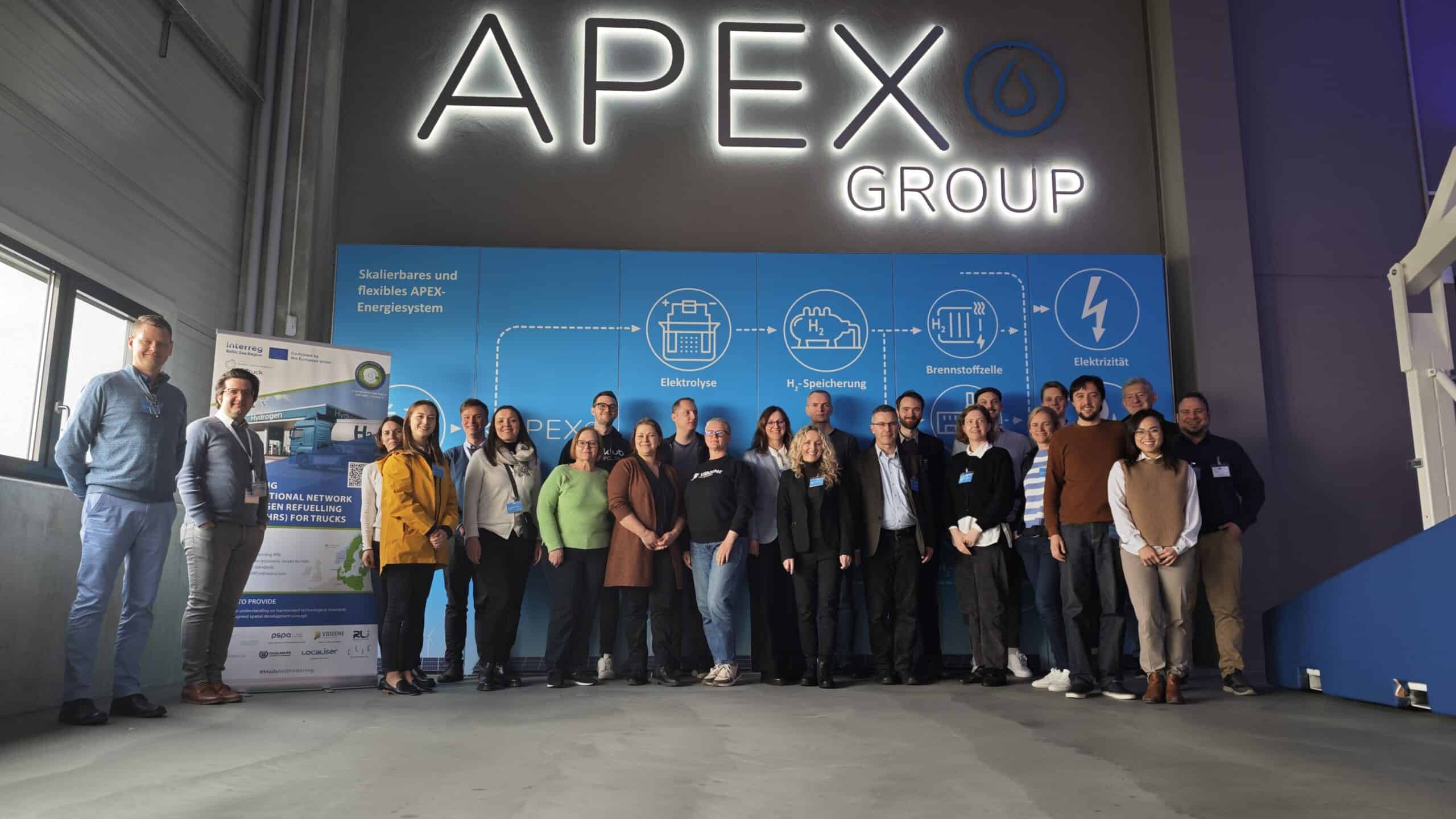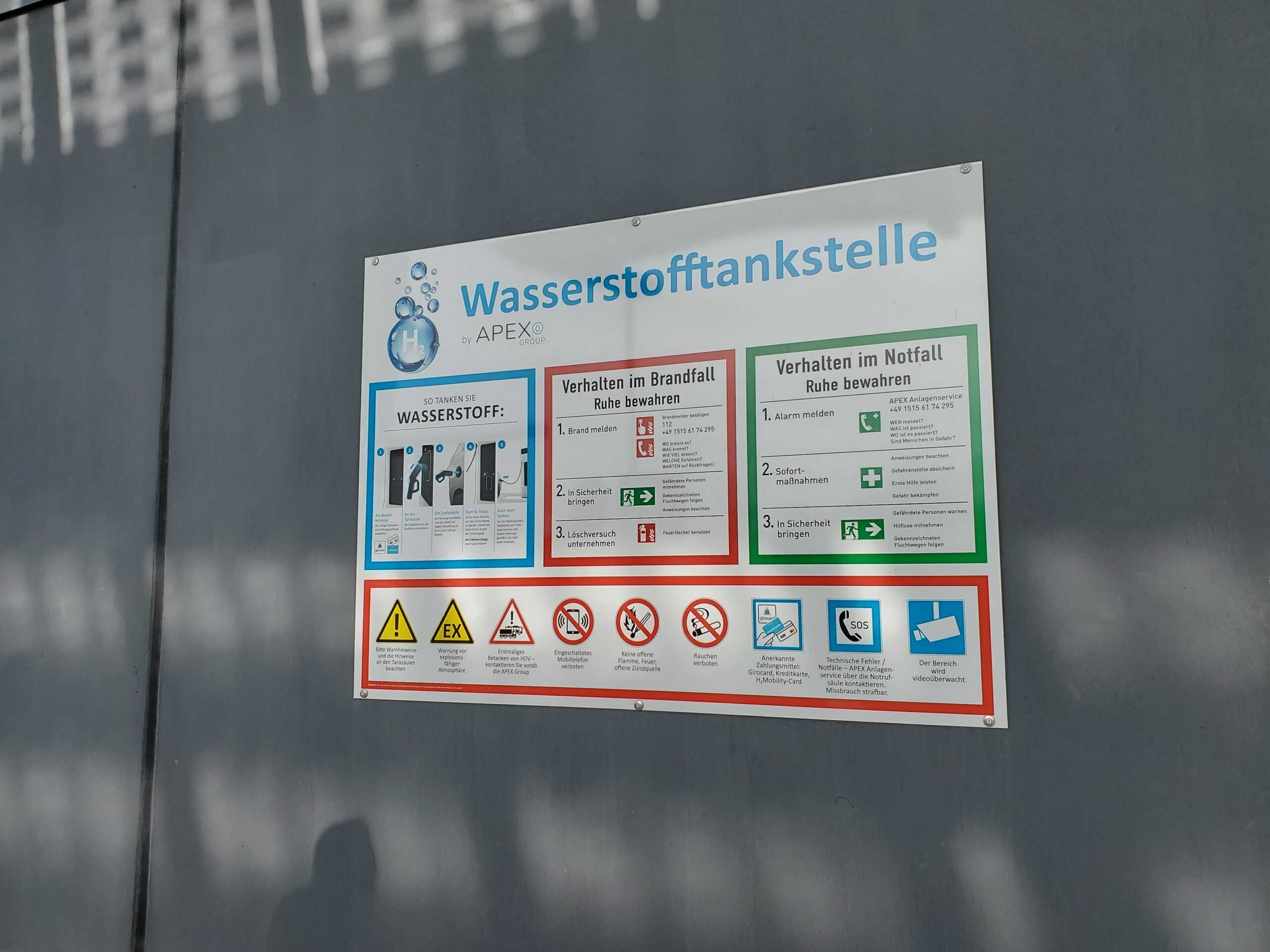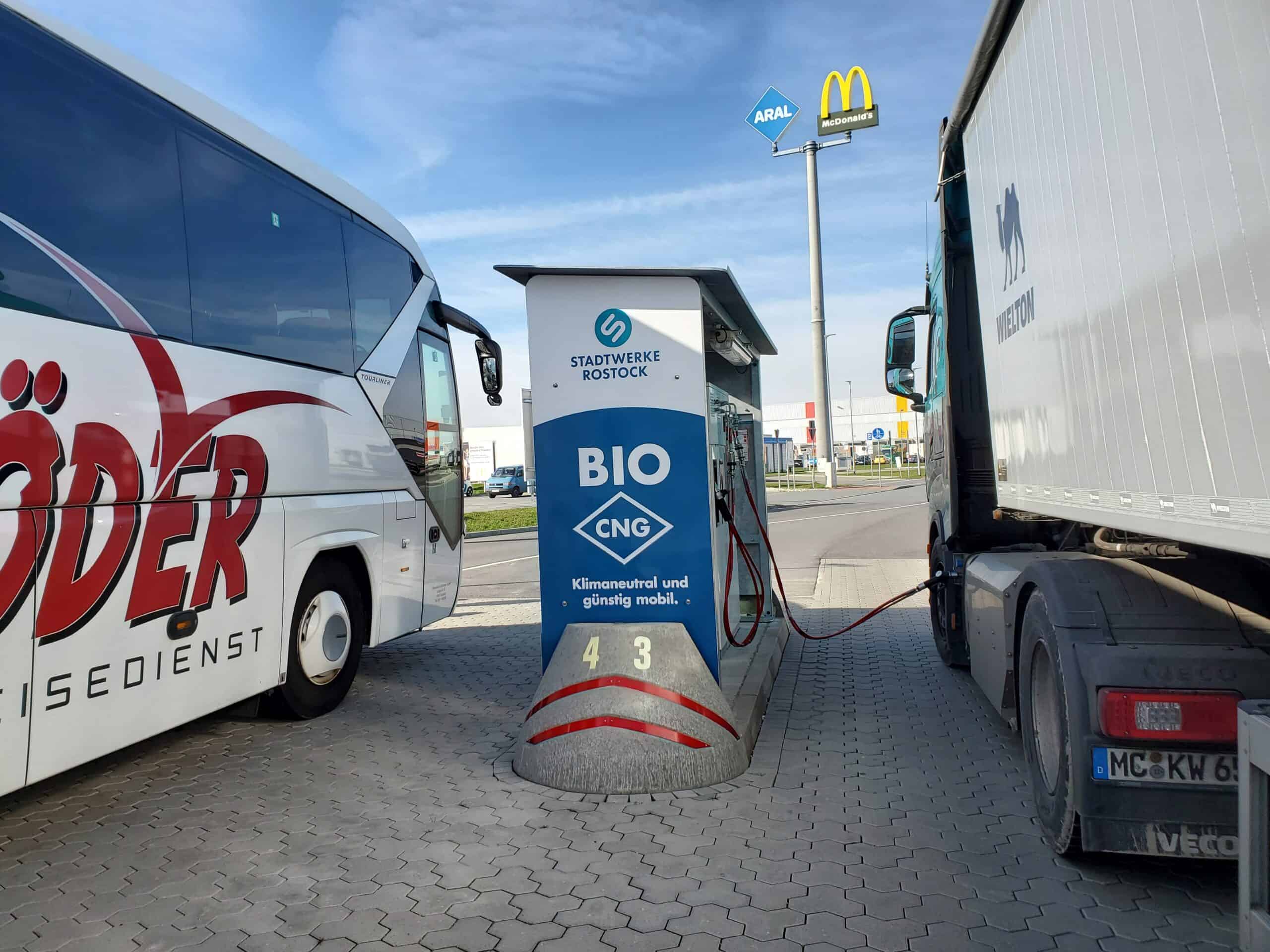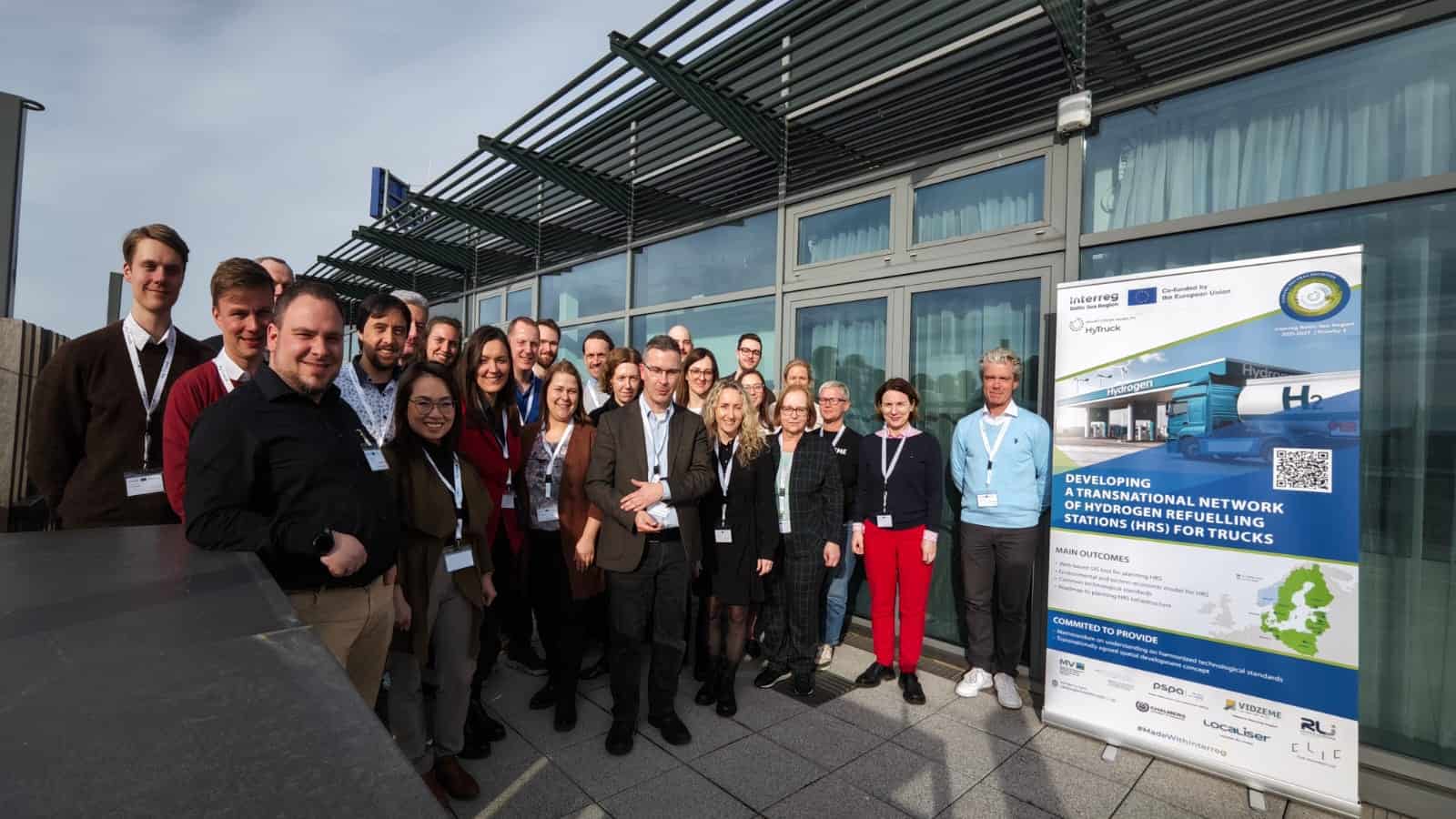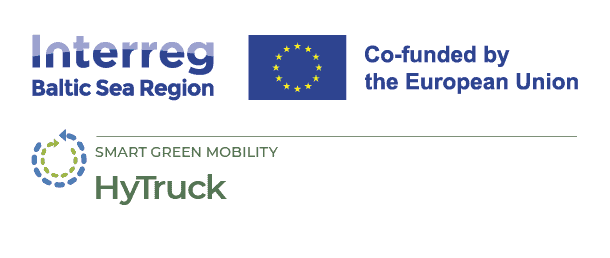
HyTruck partners spent three intensive days in Rostock region
21 March 2024
HyTruck partners met 18-20 March 2024 in Rostock. During the three days, the partners from Sweden, Finland, Latvia, Lithuania, Poland and Germany discussed the project progress and visited to sites in at Dummerstorf and Laage where hydrogen refuelling stations are discussed or in operation.
In Dummerstorf the partners visited a bioCNG refuelling station operated by Stadtwerke Rostock AG.
Some key learnings included that
- Stadtwerke Rostock are operating one of the largest gas grids in Germany,
- biomethane is injected into the grid from biogas-plants nearby,
- the refuelling station is capable to fuel up to 18 HDVs per hour,
- fuel prices (currently at ca. 1,20 EUR/kg) are competitive with diesel,
- there uis interest in H2, if it is an economically viable.
In the Dummerstorf townhall the deputy mayor, Bastian Hohesee as well as Michael Fengler, GREATER ROSTOCK introduced into plans to develop the industrial real estate and the region into a hydrogen hub. Learnings included:
- Mecklenburg-Vorpommern is consequently developing into an exporter of renewable energy, mostly produced from wind and solar farms,
- surplus renewable energy will be used to produce hydrogen, several projects, including IPCEI are underway,
- via the hydrogen backbone, H2 is to be delivered to Saxony-Anhalt and further to be used in large-scale industry,
- groundwater resources in the planning region are insufficient, thus the feasibility of a desalination plant is currently investigated.
In Laage, the partners visited a Hydrogen Refuelling Station operated by H2APEX since 2022. H2APEX opened the first HRS capable of fuelling long-distance HDV in Mecklenburg-Vorpommern. So far, main customer is the regional bus company Rebus, purchasing 52 FCEV busses for their fleet. The HRS has been financed exclusively with venture capital, without public subsidies. The HRS is equipped with one 700 and one 350 bar dispenser.
The final day was dedicated the planning of future project activities. Main questions, that were discussed comprise:
- How to improve the spatial planning toolkit, that helps to identify and optimise the location of HRS according to AFIR?
- How to take into account future technology development when planning HRS in our pilot regions?
- Which topics to address in our upcoming
- HyTruck Hashtagbreakfastbriefings?
Many thanks to Lan Janet Krause-Hopp and Alexander Pfeffer from the Ministry of Economics, Infrastructure, Tourism and Labour Mecklenburg-Vorpommern and Michael Fengler from GREATER ROSTOCK for organizing and hosting the partner meeting and study visits, to our partners for their contributions and many questions and to the colleagues from the Interreg Baltic Sea Region Joint Secretariat for staying with us all three days!






